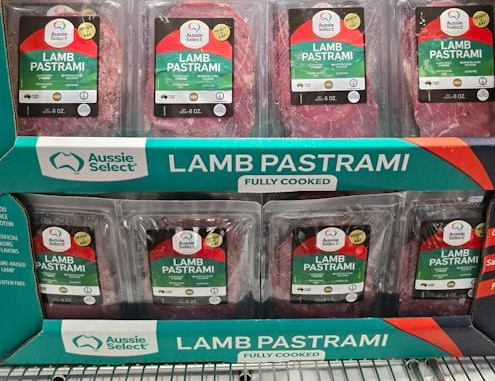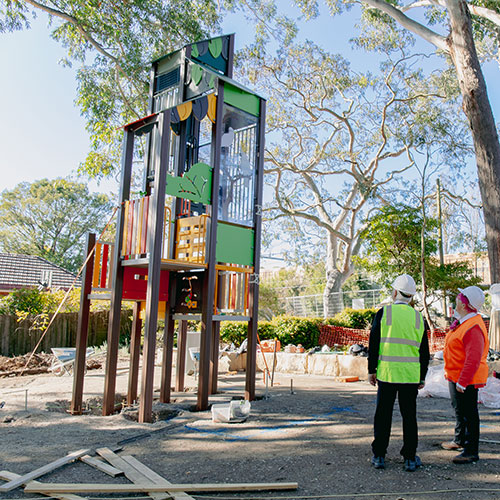Originally published in the Canberra Times.
This week we celebrate World Micro, Small and Medium-sized Enterprises Day, which is a terrific opportunity to say a big thank you to the enterprising people who are the lifeblood of our communities.
We depend heavily on the small and family-run businesses in our lives – whether it is an electrician or builder, childcare operator, gardener, dog groomer, doctor or dentist.
It may be a bookkeeper or accountant, private tutor, cleaner or health therapy professional, a truck driver, fitness instructor or graphic designer.
Perhaps it is a local winemaker or farmer, mechanic, bespoke jewellery maker, pharmacist, grocer or cafe owner who work every day to delight customers and energise enterprise.
These are great people in plain sight,. We see them everywhere, every day.
Small business is a dynamic and fast-growing sector that allows people with an entrepreneurial spirit to pursue their dreams and own livelihoods. They come with varied ambitions, backgrounds and experiences but what they have in common is the desire to have a go.
MSME Day, on June 27, is an initiative of the United Nations General Assembly to raise public awareness of small business’ contribution to our prosperity, wellbeing and community.
Almost 98 per cent of businesses in Australia are small businesses – some 2.5 million who generate almost $600 billion of economic activity, accounting for 33 per cent of our nation’s GDP.
Small businesses provide jobs for 5.36 million people – 42 per cent of private sector jobs.
This contribution is truly worthy of recognition and celebration. But in 2006 the sector contributed 40 per cent of GDP and employed 53 per cent of private sector jobs.
This worrying trajectory shows we need to do more to energise enterprise.
Small business needs to be front of mind for our policymakers and regulators. We need to do all we can to shift the mindset from minimising headwinds to maximising the “wind in the sails” of our hard-working small and family businesses.
Why not establish the Prime Minister’s Small Business Awards to celebrate excellence and inspire the next generation?
Every well-intentioned change by Parliament or regulators risks adding to the mountain of red tape that gets between the owner and the small business they are trying to run.
A simple improvement that governments at all levels around the country could take is to require every submission to Cabinet to include a small business impact statement. Regulatory impact assessments should start with and focus on small business implications, not consider this as an afterthought.
This would mean every time a decision is made, small business will be front of mind and bright on the radar screen.
Just released figures from the Tax Office show 46 per cent of small businesses didn’t make a profit in the most recent year of accounts available.
And some three-quarters of self-employed business owners are earning less than the average total weekly, full-time earnings.
There’s no rivers of gold for these people, just a hard slog.
Surely, we can do more to get the risk and reward balance right, ensuring small business and entrepreneurship is a really attractive option for people, then create a supportive ecosystem to give enterprising people the best chance to be successful.
Expectations and the “ask” take too little account of the cumulative demands and resource-constrained circumstances of small businesses.
There’s a flurry of new workplace rules and obligations, changes to privacy laws, fear about cyber security and what we call ‘white tape’ where big business is asking for more and more information from small businesses suppliers.
Small and family businesses are not looking for an escape hatch, but need a right-sized, actionable, fit-for-purpose, and efficient approach with appropriate support and guidance.
Our small business owners are also getting older with the average age now 50, up from 29 where it was in 1976. In the 1980s there were twice as many small business owners aged between 30 and 49 as there were aged over 50.
And only 8 per cent of our small business owners are under the age of 30, half what it was in the 1970s.
Why is the next generation not seeing self-employment and their own enterprise as a pathway for the future? At a time when young people, particularly, look for purpose as well as profit in their lives, isn’t self-employment a natural fit?
Encouragingly, 35 per cent of small businesses are owned by women – double the rate from the 1970s. Increasingly, new businesses are being created by women who are finding solutions to everyday problems, sharing their ideas and building a business from their ingenuity.
One in three small businesses are also run by people who were born overseas and our culture, local business communities, and the choice of goods and services available to consumers and other businesses, are enriched by their presence.
Taking on the responsibility of owning and running a small business can be inspired by a range of goals and motivations, an abundance of purpose and meaning and be rich with unpredictability of challenges, flexibility, self-agency and income.
The spirit that drives people to run a small business also makes them great advocates for and contributors to their community and they are more likely than the general population to be a volunteer.
For small and family business owners, their identities are interwoven into their business and the stakes are so much higher than just a job. Many people have invested a lifetime – and put their family home on the line – to build up their business, which amplifies the emotional challenges.
The pressures can feel unrelenting, but it is vitally important those running a small business look after their emotional wellbeing and mental health.
Sometimes it can be as simple as making time to pause, reflect and reconnect. Talking to trusted advisers and networks is a great way to find solutions. Our website asbfeo.gov.au also has tools and resources that can be useful.
The best way to support small businesses is to be a kindly customer – patient and understanding, with good and generous intent. Small businesses are run by real people who deserve our respect and empathy every day.
Our small and family business owners and managers are great people, and we salute the terrific contribution they make everywhere, every day.







